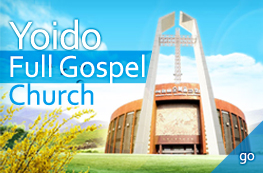* In the photo, PCK Tonghap Moderator Jeong Yeong-taek (fourth from right) and PUTS professors pose with persons related to Evangelical Seminary of Theology in Cuba, on January 30. (Photo courtesy of PCK Tonghap)
“Looking at the Cuban church, which has kept its faith in the midst of hardships, I have come to reflect on the Korean church, which seems to have lost its earnest faith.”
So said Moderator Jeong Yeong-taek of the Presbyterian Church of Korea (PCK Tonghap) in an interview with Kukmin Daily on February 21 at the Ambassador Hotel on Dongho-ro, Jung-gu, Seoul, as he shared about his recent visit to the Cuban church. Moderator Jeong visited Cuba from January 29 to February 4, expressed encouragement to persons in local denominations and seminaries, and joined in discussions on cooperative mission work.
He said, “I found my visit meaningful at this time when new historical steps are being taken, that is, the 53 years of hostile relations between Cuba and the United States, ever since 1961, recently ended (and friendly relations were restored) … The Cuban church has kept its faith and theology under the socialist regime. I think the Korean church should learn from its efforts and dedication.”
Beginning with the Church of England in the late 19th century, various Christian denominations including the Presbyterian, Baptist, and Methodist churches arrived in Cuba, and the Cuban Protestant church grew to 20 some denominations with 840 local churches, until the revolution in 1959. After the revolution, however, the circumstances were not amicable.
Moderator Jeong explained, “In the late 1960s, the Cuban government banned the planting of new churches and the constructing of new buildings, as well as all religious activities outside existing church buildings… Christians were not allowed to join the Communist Party, and thus it was difficult for them to get certain jobs, such as professor, engineer, medical doctor, or public official.”
All the church buildings not being used at that time were to be reverted to the government. Moderator Jeong said, “Ironically the hardships of the Cuban church sustained the church. Pastors who were studying in the United States at that time returned quickly to Cuba. And together with the pastors and their families who were residing in Cuba, they held worship services in church buildings throughout the nation to ‘protect’ the buildings.”
Later, when the former U.S.S.R collapsed in 1992, the Cuban government also changed: It encouraged Christians to take the lead in requesting economic aid from foreign countries, allowed Christians to join the Communist Party, and became increasingly flexible in policies on religion. Cuban Protestant Christianity grew slowly, and now it is estimated to have 2,500 churches with 800,000 believers.
Moderator Jeong said, “Cuban Christians kept their faith under hardship. Their government still controls and supervises certain elements of their church, but local Christians confess that God loves Cuba and will protect Cuba.” He suggested, “The Korean church needs to seek wisdom for its future direction in the experiences of the Cuban Protestant church.”
He said, “The Korean church experienced great growth from the 1970s to the 1980s. It seems the Korean church has forgotten the hardships of the past, has become addicted to opulence, fallen onto a growth-oriented mindset, and lost its yearning for Jesus Christ… Particularly this year, as we celebrate the 70th anniversary of independence, the Korean church needs to restore its earnest faith by revisiting our ancestors who kept their faith during difficult times such as the Japanese occupation and the Korean War.
He continued, “Members of Cuban society believe they need to become ‘social individuals.’ That is to say, individuals make contributions to society while fulfilling themselves. This concept implies many things to capitalist societies, as well as to the Korean church, which is filled with greed and individual pursuit of profit... There are about 20 denominations in Cuba, and they also recognize themselves as one ‘reformed church of Cuba,’ rather than emphasizing individual denominations. This has resonance for the Korean church, since church unity is our most urgent task.”
President Kim Myeong-yong of Presbyterian University and Theological Seminary (PUTS), who accompanied Moderator Jeong on his visit to Cuba, signed a theological exchange agreement with Evangelical Seminary of Theology in Matanzas. The two seminaries plan to establish exchange programs for students and professors, hold joint conferences, symposia, and seminars, and share information on theological education. They promised to continue their conversations as necessary for academic cooperation.
Before visiting Cuba, Moderator Jeong visited the National Presbyterian Church in Mexico (INPN), from February 26 to 28. He said, “The INPN asked for proactive participation by Korean missionaries in its church planting in the mid-northern region, a mission on the denomination level, where the Presbyterian church is particularly weak… They said an agreement with PCK Tonghap can help Korean missionaries in getting their religious visas, and in dealing with other elements necessary for their stay in Mexico, including financial collaboration and language training at local seminaries.” Moderator Jeong added, “INPN is the largest denomination among the Presbyterian churches in Latin America, and is equipped with human and financial resources. I believe it is capable of various kinds of cooperative mission with us.”
Reporter Lee Saya (Isaiah@kmib.co.kr), with Yeara Ahn-Park (yap@kmib.co.kr)
Click here for the original article in Korean
PCK Tonghap Moderator Jeong Yeong-taek Visits Cuban Church to Seek Cooperation
2015-02-27 13:37



